-
 Bitcoin
Bitcoin $83,418.1551
-0.31% -
 Ethereum
Ethereum $1,808.8979
-0.41% -
 Tether USDt
Tether USDt $0.9999
0.02% -
 XRP
XRP $2.1463
1.00% -
 BNB
BNB $593.3907
-0.49% -
 Solana
Solana $120.0979
-1.63% -
 USDC
USDC $1.0001
0.00% -
 Dogecoin
Dogecoin $0.1689
-0.83% -
 Cardano
Cardano $0.6536
-1.17% -
 TRON
TRON $0.2370
-0.75% -
 Chainlink
Chainlink $12.8454
-0.75% -
 UNUS SED LEO
UNUS SED LEO $9.1245
-0.51% -
 Toncoin
Toncoin $3.2503
-4.22% -
 Stellar
Stellar $0.2527
-2.58% -
 Avalanche
Avalanche $17.8357
-1.69% -
 Shiba Inu
Shiba Inu $0.0...01231
-0.09% -
 Sui
Sui $2.2068
-1.49% -
 Hedera
Hedera $0.1623
-0.93% -
 Litecoin
Litecoin $82.5360
-2.34% -
 Polkadot
Polkadot $3.9567
-1.88% -
 Bitcoin Cash
Bitcoin Cash $306.9330
1.70% -
 MANTRA
MANTRA $6.2879
0.30% -
 Dai
Dai $1.0001
0.01% -
 Bitget Token
Bitget Token $4.4588
-1.48% -
 Ethena USDe
Ethena USDe $0.9992
0.01% -
 Pi
Pi $0.6376
24.33% -
 Hyperliquid
Hyperliquid $11.9460
0.08% -
 Monero
Monero $213.4997
-0.58% -
 Uniswap
Uniswap $5.8533
-0.79% -
 OKB
OKB $52.7441
6.99%
Does the virtual ecosystem in the Metaverse rely on NFT technology to build?
The Metaverse utilizes NFTs for digital ownership, but its infrastructure relies on a broader technological ecosystem including blockchain and decentralized platforms; NFTs are a vital, but not the sole, component.
Mar 05, 2025 at 01:18 pm
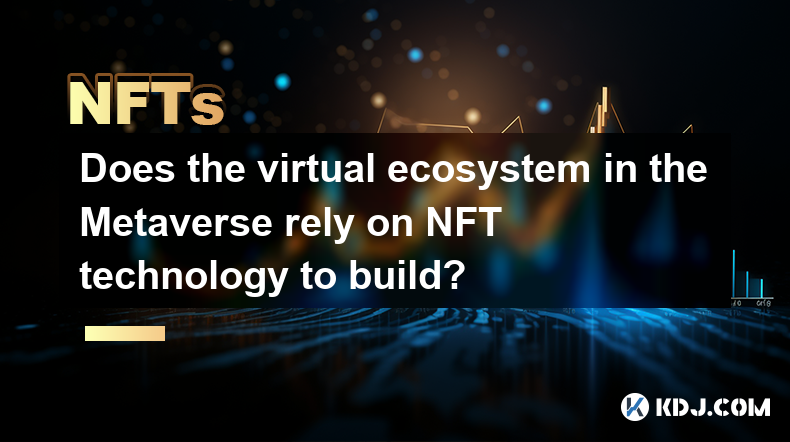
Key Points:
- The Metaverse's virtual ecosystems utilize NFTs in various ways, but complete reliance is not absolute.
- NFTs offer digital ownership and scarcity, crucial for in-world assets.
- Other technologies, like blockchain and decentralized platforms, are equally important for Metaverse infrastructure.
- The relationship between NFTs and Metaverse ecosystems is symbiotic, not one of complete dependence.
- Scalability, interoperability, and regulatory uncertainty pose challenges to NFT integration in the Metaverse.
Does the virtual ecosystem in the Metaverse rely on NFT technology to build? The answer is nuanced. While NFTs play a significant role in shaping the Metaverse's virtual economies and user experiences, it's inaccurate to say they are the sole foundation. The Metaverse is a complex tapestry woven from multiple technological threads, with NFTs being one particularly vibrant strand. Their unique properties, however, make them an integral, albeit not exclusive, component.
NFTs, or Non-Fungible Tokens, provide a mechanism for establishing verifiable digital ownership. This is crucial in the Metaverse, where users might own virtual land, avatars, in-game items, or even digital art. The scarcity inherent in NFTs ensures exclusivity and value, mimicking the real-world concept of ownership. This is a key differentiator from traditional gaming systems where items are often easily duplicated or controlled by a central authority.
However, NFTs are not the only technological pillar supporting the Metaverse. Underlying many Metaverse platforms is blockchain technology, providing a secure and transparent ledger for recording transactions and ownership. This decentralized nature contrasts with centralized servers, enhancing user control and reducing single points of failure. Furthermore, various decentralized platforms and protocols are vital for facilitating interactions within these virtual worlds.
The relationship between NFTs and the Metaverse is best described as symbiotic. NFTs provide the tools for digital ownership and asset management, but the Metaverse itself provides the environment where these assets hold value and utility. The value of an NFT representing a virtual plot of land, for example, is intrinsically tied to the Metaverse platform hosting it. Without the platform, the NFT holds significantly less value.
Despite their importance, the integration of NFTs into the Metaverse is not without its challenges. Scalability remains a significant hurdle. Processing a large number of NFT transactions can be slow and expensive, impacting the user experience. Interoperability between different Metaverse platforms is another issue. Ideally, users should be able to seamlessly transfer their NFTs between various virtual worlds, but this functionality is still largely underdeveloped.
Regulatory uncertainty is yet another significant challenge. The legal framework surrounding NFTs and their use in the Metaverse is still evolving, creating uncertainty for both developers and users. Governments worldwide are grappling with how to regulate digital assets, and this lack of clarity can hinder the broader adoption of NFTs within Metaverse ecosystems.
Beyond the technical challenges, the question of real-world utility also plays a role. While some NFTs represent valuable digital assets, many others lack inherent utility, existing primarily as speculative investments. The long-term success of NFTs in the Metaverse will depend on their ability to provide real value and practical applications beyond mere speculation. This is an area that requires continued innovation and development.
The Metaverse aims to be a persistent and immersive virtual world, offering experiences far beyond simple gaming. This involves sophisticated 3D rendering, complex interactions, and robust social features. While NFTs contribute significantly to the economy and asset ownership within these virtual worlds, they are merely one element within a much larger technological infrastructure.
The question of whether the Metaverse relies completely on NFT technology is therefore answered with a resounding "no." While NFTs play a vital role in creating digital ownership and driving economic activity, a functioning Metaverse also requires robust blockchain technology, scalable infrastructure, interoperable platforms, and a clear regulatory framework. The future of the Metaverse will likely involve a more integrated and sophisticated interplay between these various technological components.
Frequently Asked Questions:
Q: Are NFTs essential for the Metaverse?
A: While NFTs significantly enhance the Metaverse experience by enabling digital ownership and scarcity, they aren't strictly essential. The Metaverse could theoretically exist without them, though it would likely lack key economic and user experience features.
Q: Can I use NFTs from one Metaverse platform on another?
A: Currently, interoperability between Metaverse platforms is limited. The ability to seamlessly transfer NFTs between different platforms is still under development, though efforts are underway to improve this.
Q: What are the risks associated with NFTs in the Metaverse?
A: Risks include scams, fraud, the volatility of NFT prices, scalability issues on the blockchain, and regulatory uncertainty surrounding digital assets.
Q: How are NFTs impacting the Metaverse economy?
A: NFTs are creating new economic opportunities within the Metaverse, enabling the buying, selling, and trading of virtual assets, fostering a vibrant digital economy.
Q: What is the future of NFTs in the Metaverse?
A: The future depends on resolving issues like scalability, interoperability, and regulatory clarity. If these challenges are overcome, NFTs could play an even more significant role in shaping the Metaverse's future.
Disclaimer:info@kdj.com
The information provided is not trading advice. kdj.com does not assume any responsibility for any investments made based on the information provided in this article. Cryptocurrencies are highly volatile and it is highly recommended that you invest with caution after thorough research!
If you believe that the content used on this website infringes your copyright, please contact us immediately (info@kdj.com) and we will delete it promptly.
- Is Ethereum (ETH) Dead as an Investment?
- 2025-04-06 08:40:12
- Bitunix exchange launches the Ultra version of K-line (candlesticks) on its mobile app integrated with TradingView
- 2025-04-06 08:40:12
- As XRP Has Become the Focus of the Market Due to Ripple's Legal Victory and ETF Expectations
- 2025-04-06 08:35:12
- Trump-Themed Coins Dominate the List of Top-Performing Cryptos Today
- 2025-04-06 08:35:12
- Meme Coins Could Be Solana (SOL)'s Secret Weapon to $1,000
- 2025-04-06 08:30:12
- Did BlackRock's CEO Just Describe XRP Without Saying Its Name? Plus, One Ripple Alternative You Haven't Heard Of
- 2025-04-06 08:30:12
Related knowledge
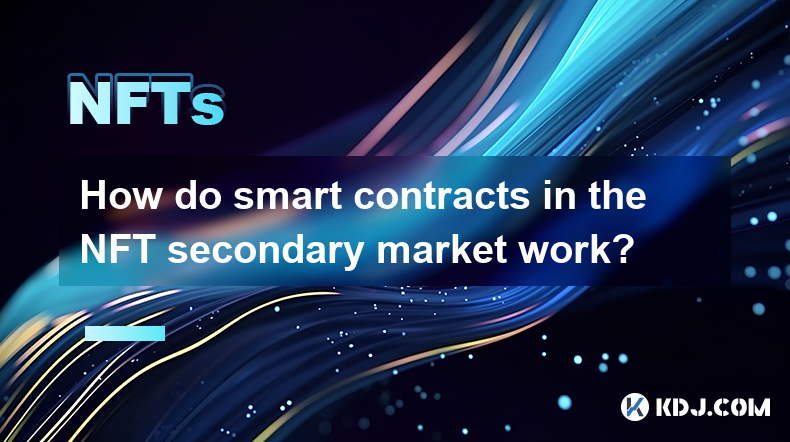
How do smart contracts in the NFT secondary market work?
Apr 03,2025 at 07:14am
Smart contracts play a pivotal role in the NFT secondary market, facilitating seamless transactions and enforcing predefined rules. These self-executing contracts with the terms of the agreement directly written into code are stored on the blockchain. In the context of NFTs, smart contracts automate the buying, selling, and transferring of digital asset...
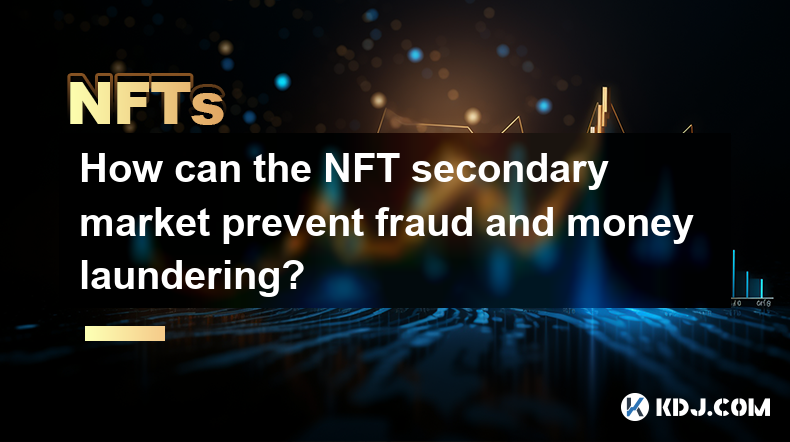
How can the NFT secondary market prevent fraud and money laundering?
Apr 03,2025 at 08:35am
The NFT secondary market has become a thriving hub for digital art and collectibles, but it also faces challenges in preventing fraud and money laundering. To tackle these issues, the market can implement various strategies and technologies to ensure a safer and more transparent trading environment. This article will explore how the NFT secondary market...
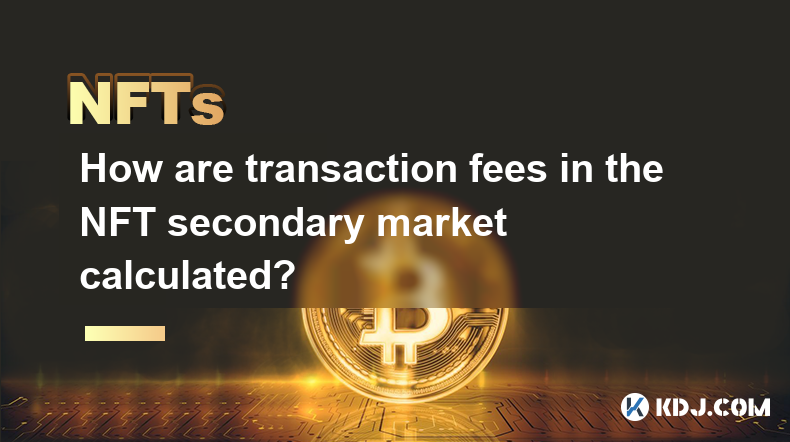
How are transaction fees in the NFT secondary market calculated?
Apr 04,2025 at 05:28am
The calculation of transaction fees in the NFT secondary market is a crucial aspect that both buyers and sellers need to understand. These fees can significantly impact the overall cost of transactions and the profits that sellers can make. In this article, we will delve into the various components that make up these fees, how they are calculated, and w...
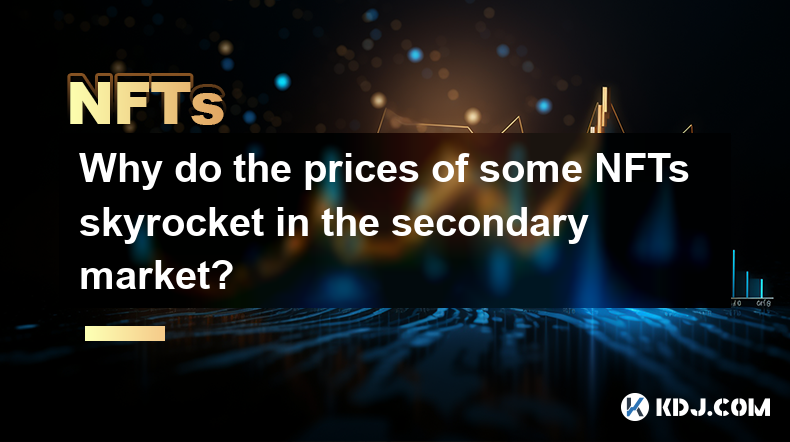
Why do the prices of some NFTs skyrocket in the secondary market?
Apr 06,2025 at 07:08am
The phenomenon of NFT prices skyrocketing in the secondary market is a fascinating aspect of the cryptocurrency and digital art world. Non-Fungible Tokens (NFTs) have taken the digital world by storm, and their value can surge dramatically after initial sales. Several factors contribute to this price surge, including rarity, demand, speculation, and the...
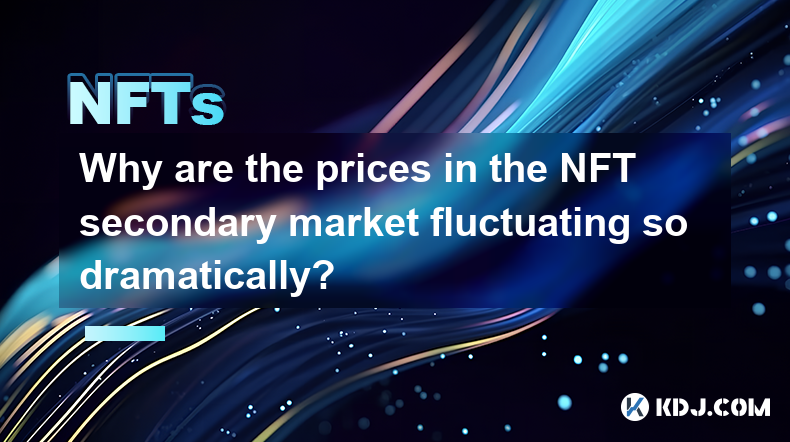
Why are the prices in the NFT secondary market fluctuating so dramatically?
Apr 03,2025 at 10:35pm
The NFT secondary market has been experiencing dramatic price fluctuations, leaving many in the cryptocurrency community puzzled and curious. To understand this phenomenon, it's essential to delve into the factors driving these price movements. From the impact of market sentiment and celebrity endorsements to the role of speculation and the unique natur...
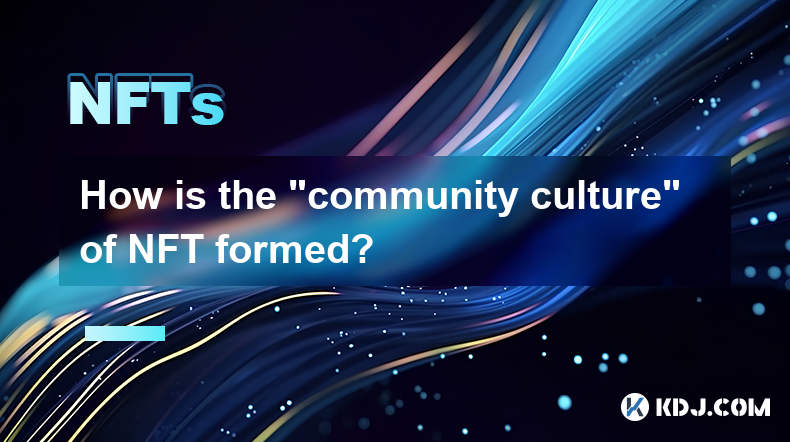
How is the “community culture” of NFT formed?
Apr 03,2025 at 11:07am
The formation of the 'community culture' within the NFT (Non-Fungible Token) space is a fascinating and multi-faceted process. It involves various elements such as shared interests, active engagement, and the creation of a sense of belonging among members. NFT communities often revolve around specific projects or artists, fostering a unique environment ...

How do smart contracts in the NFT secondary market work?
Apr 03,2025 at 07:14am
Smart contracts play a pivotal role in the NFT secondary market, facilitating seamless transactions and enforcing predefined rules. These self-executing contracts with the terms of the agreement directly written into code are stored on the blockchain. In the context of NFTs, smart contracts automate the buying, selling, and transferring of digital asset...

How can the NFT secondary market prevent fraud and money laundering?
Apr 03,2025 at 08:35am
The NFT secondary market has become a thriving hub for digital art and collectibles, but it also faces challenges in preventing fraud and money laundering. To tackle these issues, the market can implement various strategies and technologies to ensure a safer and more transparent trading environment. This article will explore how the NFT secondary market...

How are transaction fees in the NFT secondary market calculated?
Apr 04,2025 at 05:28am
The calculation of transaction fees in the NFT secondary market is a crucial aspect that both buyers and sellers need to understand. These fees can significantly impact the overall cost of transactions and the profits that sellers can make. In this article, we will delve into the various components that make up these fees, how they are calculated, and w...

Why do the prices of some NFTs skyrocket in the secondary market?
Apr 06,2025 at 07:08am
The phenomenon of NFT prices skyrocketing in the secondary market is a fascinating aspect of the cryptocurrency and digital art world. Non-Fungible Tokens (NFTs) have taken the digital world by storm, and their value can surge dramatically after initial sales. Several factors contribute to this price surge, including rarity, demand, speculation, and the...

Why are the prices in the NFT secondary market fluctuating so dramatically?
Apr 03,2025 at 10:35pm
The NFT secondary market has been experiencing dramatic price fluctuations, leaving many in the cryptocurrency community puzzled and curious. To understand this phenomenon, it's essential to delve into the factors driving these price movements. From the impact of market sentiment and celebrity endorsements to the role of speculation and the unique natur...

How is the “community culture” of NFT formed?
Apr 03,2025 at 11:07am
The formation of the 'community culture' within the NFT (Non-Fungible Token) space is a fascinating and multi-faceted process. It involves various elements such as shared interests, active engagement, and the creation of a sense of belonging among members. NFT communities often revolve around specific projects or artists, fostering a unique environment ...
See all articles





















































































